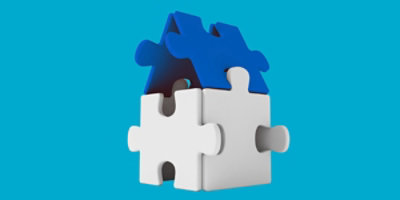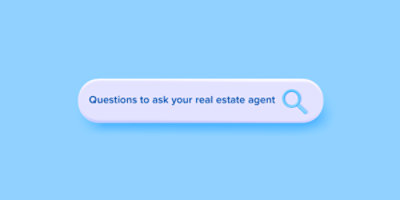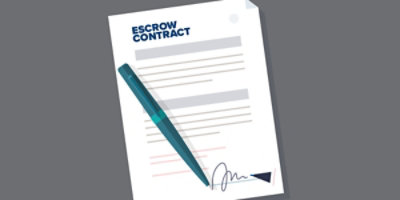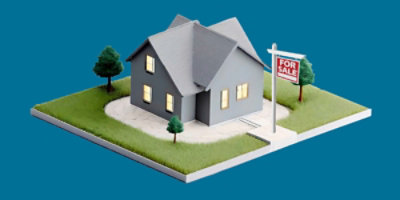-
Personal Banking -
Insights
How Much Do You Need for a Down Payment?
When you've decided you're ready to buy your first home or to move up to your next home, one of your first steps is to gather funds for a down payment. How much will you need? That depends on the requirements of your mortgage loan, the price of the home and your personal preference.
What is a Down Payment?
Understanding what a down payment is starts with knowing the in-and-outs of mortgages.
Essentially, a mortgage is used to finance the purchase of a home with principal and interest payments spread over a loan term of 10 to 30 years. Your down payment is a cash payment towards the home purchase and your mortgage is used to pay the rest of the balance. The down payment represents your equity in the home — and that equity may build over time as you pay down your loan balance.
When you make a deposit on a home after an offer has been accepted, that deposit becomes part of your down payment.
Do You Need 20% for a Down Payment?
Many buyers share the misconception that a down payment of 20% is required to buy a house. While 20% is recommended by many experts, there are plenty of options that do not require 20% down.
In fact, the average down payment for a primary residence in 2022 was 13.6%, according to analysis by Realtor.com. You may want to consider putting more or less than 20% down in some instances.
For example, first-time homebuyers often have access to special loans that are designed to help them overcome the challenges of saving up a 20% down payment.
Down Payments Vary Based on Home Loans
When you apply for a loan, you'll likely have many questions to ask a mortgage lender. It's smart to consult a lender early in the homebuying process so you can confirm how much you can borrow and how much you'll need for a down payment and closing costs with different loan options. Mortgages are available with down payment requirements from 3% to 20%. Some special loan programs even come with down payment options of zero.
California Home Loan Down Payment - CalHFA
Many state and local governments have special loan programs and down payment assistance options to encourage homeownership. In California, for example, the CalHFA program includes down payment assistance of 3% or 3.5% of the loan amount depending on the chosen mortgage option.
Reasons to Pay a Higher Down Payment
While you must make the minimum down payment required by a specific lender or loan program to qualify for a mortgage, beyond that, how much you should put down on a house is up to you. Some financial experts recommend a larger down payment. Some of the reasons to make more than the minimum down payment on a house include:
Lowering Your Monthly Payment
A higher down payment can help lower your monthly payment in several ways. First, you'll borrow less, so the balance you need to pay off is lower. Second, depending on the loan program and the amount of your down payment, you could qualify for a lower interest rate. Third, if you raise your down payment to 20% or more, you can eliminate the need to pay private mortgage insurance, or PMI — keep reading to learn more about it.
Having More Equity in Your Home at the Start
The equity you have in your home is the difference between its value and how much you owe on your mortgage. You can build equity over time as you pay down your mortgage or if your home's market value increases. With a bigger down payment, you increase your equity from the beginning. If you want to borrow from your equity later, refinance your loan or sell your home, you'll have more cash. If home values decline, the equity from your down payment may provide you with a cushion so you're less likely to need come up with cash if you need to sell and pay off your mortgage.
Making a Competitive Offer
If you're in a market with high demand and limited homes for sale, a larger down payment may help you get an offer accepted. Sellers feel more confident that you'll close on the sale if you make a bigger down payment. Generally, larger down payments tend to lead to smoother transactions.
Getting a Newer or Bigger Home
Depending on whether you want a larger and more expensive home or are interested in downsizing, a larger down payment can be desirable. A bigger down payment may allow you to buy a more expensive home or newer home while keeping your monthly payment within your housing budget. If you downsize, a larger down payment may significantly reduce your monthly mortgage payment.
Avoiding PMI
For most loans, you'll need a down payment of at least 20% to avoid something called private mortgage insurance (PMI). Simply put, PMI is a cost that's added to a mortgage payment to protect lenders from homeowners who default on their loans.
Reasons Not to Make a Large Down Payment
While there are valid reasons to increase your down payment if you can, there are also several reasons why you may be better off making the minimum down payment or at least a smaller down payment than you can afford.
More Money for Upgrades
Whether the home you're buying needs renovations now or you hope to make improvements in the next couple of years, you may want to pay for those out-of-pocket rather than borrow more money for them. Cash on hand to invest in your home can be valuable, especially for unexpected repairs.
Having More Immediate Liquidity
If you tie up your available cash in your home purchase, you may not have enough in your emergency fund or for other expenses, such as closing costs and moving. In addition, you may want to invest the money elsewhere or utilize the money for other needs.
It can be difficult to pull money out of a house once it is invested there, so carefully evaluate the best use of your funds.
Making Homeownership an Option Sooner
The more down payment money you need, the longer it will take for you to save it. Waiting to buy while you save more money may delay homeownership, which could come at a cost. If you're renting, your rent could increase and you won't be building equity. The market may change over time and it may become more costly to buy if local home prices rise and/or interest rates go up.
Hidden Costs of Homeownership
While saving for a down payment is the biggest challenge for many buyers, there are more costs to homeownership beyond a down payment. Upfront expenses when you buy include paying for a home inspection, closing costs and moving. Ongoing expenses include property taxes and homeowner's insurance, both of which can increase over time. You'll also need to pay for utilities, repairs, maintenance and perhaps homeowner's association fees.
Learn more about the homebuying journey by reading about how to buy a home.
If you ask a financial advisor why might you rent a home rather than buy a home, they can provide you with a cost analysis of renting vs. buying. In general, it makes sense to buy when you plan to live in the property for five years or more, so you can recoup your initial investment in the purchase and cover the cost to sell it.
FAQs for Down Payments
Is 5% Enough for a Down Payment?
Yes, some loan programs allow a down payment of 5%.
How Much Down Payment Do You Need for a $200,000 House?
How much cash you need for a down payment depends on you and your lender. For a $200,000 loan, the amounts are as follows:
- 5% - $10,000
- 10% - $20,000
- 20% - $40,000
What Are the Credit Requirements for Homeownership?
Your credit score is an important factor in whether you qualify for a home loan and in your interest rate, but it's just one of many elements of your financial profile that a lender will review. Generally, you'll need a credit score of 620 or higher to qualify for a conventional loan. A higher credit score will make it easier to qualify and possibly lower your interest rate. Government-backed loans such as FHA, VA and USDA loans typically require a minimum credit score of 500 to 640.
This article is for general information and education only. It is provided as a courtesy to the clients and friends of City National Bank (City National). City National does not warrant that it is accurate or complete. Opinions expressed and estimates or projections given are those of the authors or persons quoted as of the date of the article with no obligation to update or notify of inaccuracy or change. This article may not be reproduced, distributed or further published by any person without the written consent of City National. Please cite source when quoting.
Loans and lines of credit are subject to credit and property approval. Additional terms and conditions apply. Not all applicants will qualify. Home equity lines of credit are not available in Texas.





